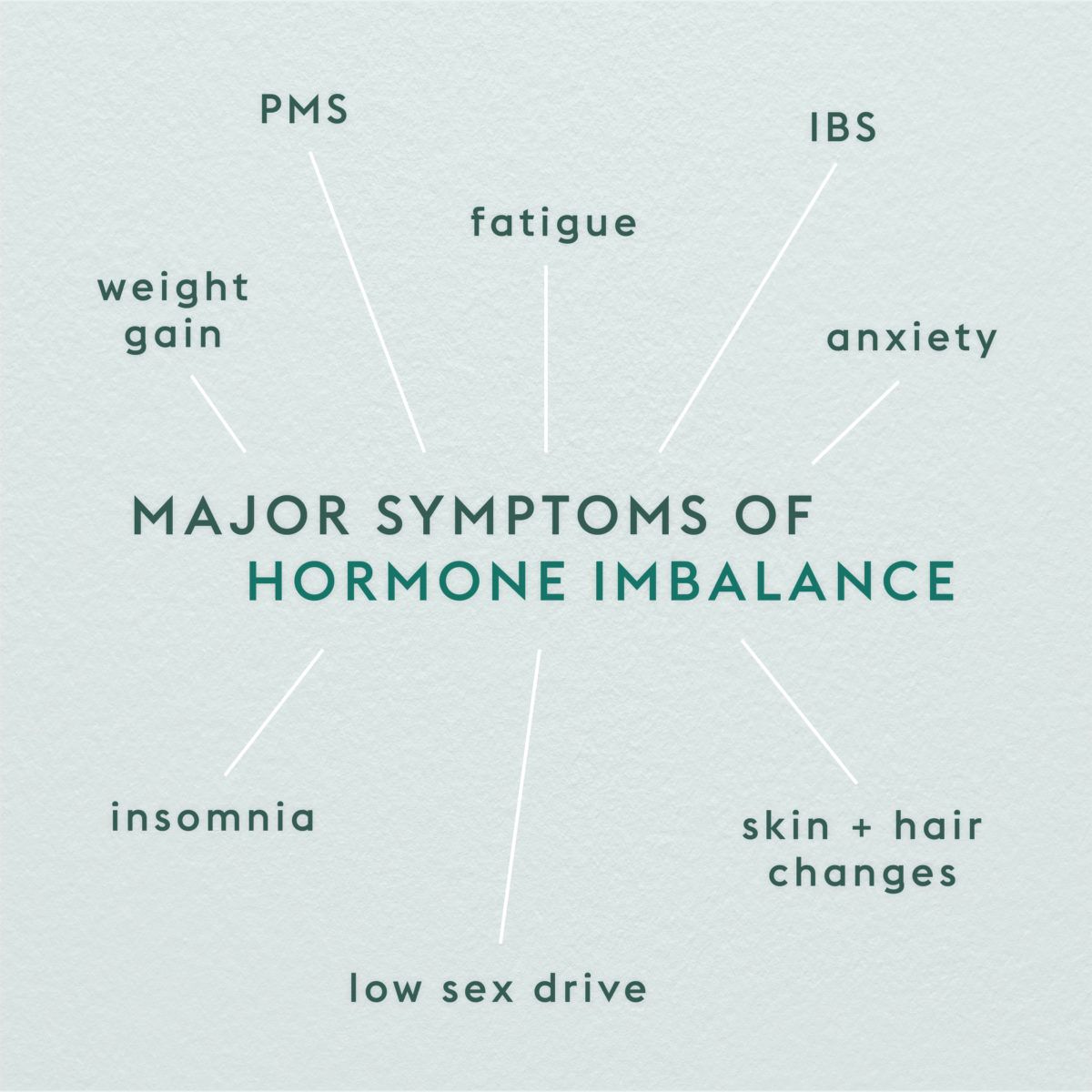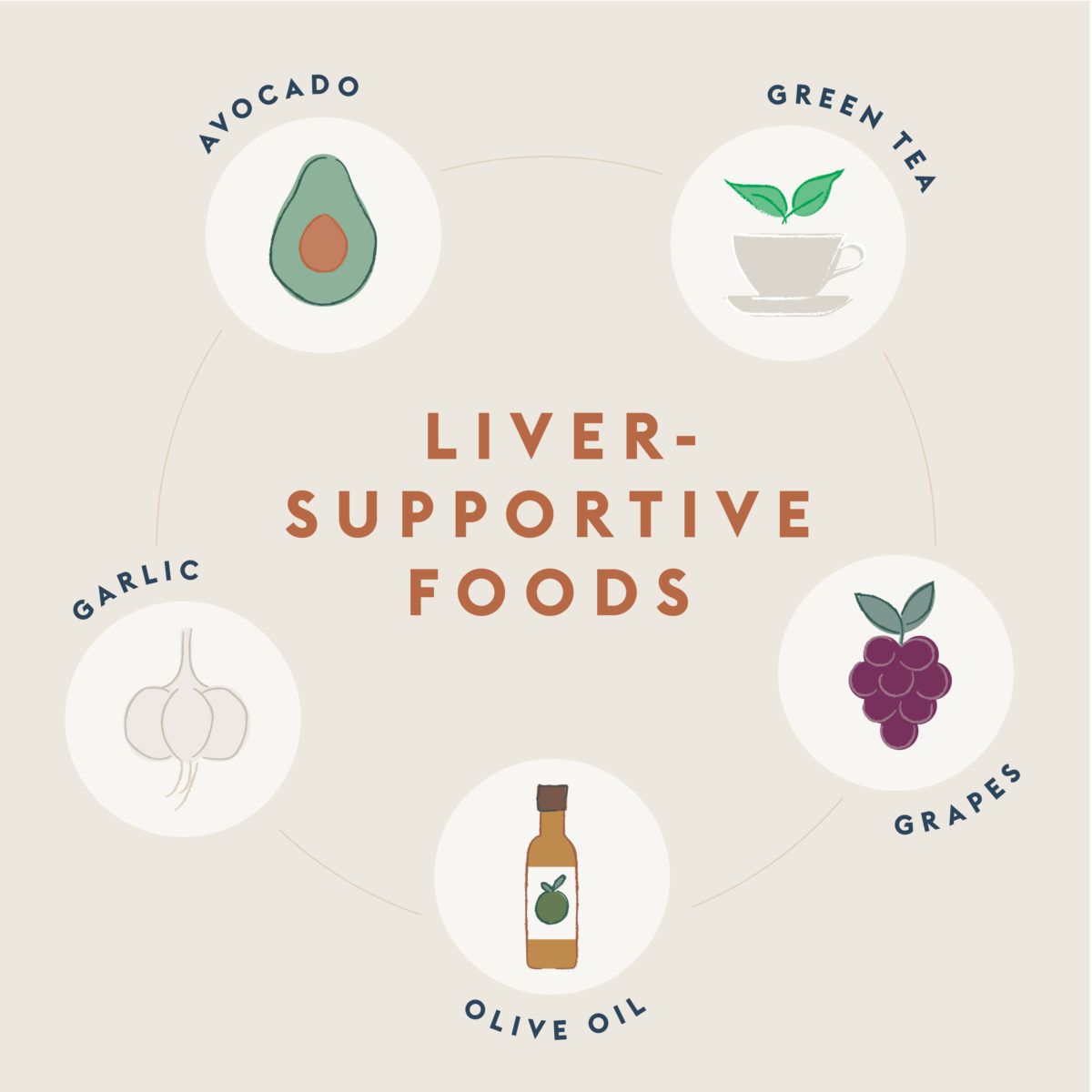Painful or irregular periods, changes in your menstrual cycle, low libido, or hot flashes? Blame estrogen. These symptoms are often a sign of a hormonal imbalance in your body, but luckily your diet can play a big part in helping you rebalance your hormones. “Estrogen imbalances are one of the most common hormonal issues I see amongst patients,” explains Jaclyn Tolentino, DO, a physician at Parsley Health in Los Angeles.
“Hormones, our body’s chemical messengers, are essential for the proper functioning of so many crucial physical processes, from getting a good night’s sleep to maintaining a healthy weight,” Dr. Tolentino says. If hormones are at optimal levels, they’ll send the correct message to the body, such as when to start menstruating. But if those levels are not optimal, it can throw off some of the body’s natural processes. “Too much or too little of a hormone at the wrong time can trigger a variety of unpleasant symptoms, including weight gain or loss, irregular menstrual cycles, unexplained fatigue, skin issues, and digestive issues,” Dr. Tolentino says.

For women, sex hormones such as estrogen and progesterone will normally fluctuate throughout the month as part of the menstrual cycle, and they often fluctuate during early menopause as well. “But our estrogen levels in particular can also be influenced by the presence of certain medications, particularly steroids or hormonal birth control, as well as dietary factors,” Dr. Tolentino points out.
“Some symptoms of excess estrogen include more intense PMS symptoms, weight gain, lower libido, irregular periods, and fatigue,”says Dr. Tolentino. Excess estrogen could be a result of genetic or environmental factors (such as exposure to too many endocrine disrupting chemicals). If your body creates too much of the hormone, it may also have difficulty processing it and then eliminating it from the body, and therefore estrogen can build-up. This is where hormone balancing foods come in handy.
“Estrogen is not the enemy—we all need it—but it’s the way women metabolize it that can be problematic,” Dr. Tolentino says. The key, she explains, is eliminating the hormone from the body, first through the liver, and then through the intestinal tract. “This is the last step in making sure your body is detoxifying hormones properly, so you don’t recirculate and build them up in excess in the body,” Dr. Tolentino adds. This is why gut health, regular bowel movements, and consequently, nutrition, are so important to estrogen metabolism. You can tailor your nutritional choices to help balance estrogen and make sure it is processed and eliminated correctly from the body.
Why does diet make a difference in your estrogen levels?
The foods you tend to (hopefully) stay away from in order to care for your heart health, gut health, and metabolism should be the same ones you eliminate for good hormone health—specifically sugar and alcohol. “Sugar and other high-glycemic foods can be major culprits in elevated estrogen levels. Also, alcohol can change the way the body metabolizes estrogen, and women who drink alcohol frequently have higher levels of estrogen than those who do not,” Dr. Tolentino explains. After cutting back on sugary, processed foods and alcohol, there’s still more you can do to help your hormone health. There are other hormone-balancing foods that will help balance and successfully eliminate estrogen from the body—read more about what they can accomplish in stabilizing your hormones.
What kinds of foods will help get your estrogen levels back on track?
Liver-supportive foods
The first stop for estrogen elimination in the body is the liver, so it’s important to nourish it with the right kinds of foods. “The liver is like a pool filter, in that it helps sequester all toxins and bad bacteria,” Dr. Tolentino says. Incorporate liver-supportive foods into your hormone balancing diet that help prevent liver disease and promote healthy liver function, such as green tea, grapes, and foods high in healthy fats, like fish oil, avocado, olive oil, and nuts. Research published in the Journal of Nutrition and Metabolism also found that garlic, thanks to the presence of the mineral selenium, can help the liver metabolize and rid the body of toxins.

Phytoestrogens
Compounds that naturally occur in certain plants, called phytoestrogens, actually mimic estrogen in the body, which can be beneficial in balancing your estrogen levels if you have high estrogen. “Phytoestrogens compete with estrogen receptor sites throughout the body; for women who are having trouble detoxifying estrogen, they can help create a balance in the body of endogenously produced estrogen, or estrogen that is produced within the body,” Dr. Tolentino says. Eating foods containing phytoestrogens, for example non-GMO soy foods like edamame may help your estrogen return to its optimal level. Make sure that the soy products you are purchasing are grown without pesticides or GMOs, both of which can be hormone disruptors.
Foods high in omega-3’s
Inflammation in the gut can make it more difficult for the body to eliminate estrogen because it contributes to the recirculation of estrogen. In turn, excess estrogen can aggravate the gut. Adding foods that are high in Omega-3 fatty acids to your hormone balancing diet can help, because they block inflammatory particles at the cellular level to help quell inflammation. If you eat seafood, salmon, oysters, and sardines are good sources of Omega-3’s. Otherwise, nuts and seeds like walnuts and chia seeds are also highly anti-inflammatory. Some common healthy spices may do the trick as well. “Turmeric and ginger can also be beneficial in fighting inflammation in the gut, which might exist if you have an imbalance of estrogen, and are beneficial for cellular health in general,” Dr. Tolentino says.
Cruciferous vegetables
“For excess estrogen, cruciferous vegetables can help our body to jump-start estrogen elimination,” Dr. Tolentino says. Try veggies like kale, broccoli, cauliflower, Brussels sprouts, and other leafy greens. Research has proven them to be helpful in metabolizing estrogen because of important compounds like Diindolylmethane (DIM) and Sulforaphane Glucosinolate (SGS), which help flush toxins out of the body. Plus, the high fiber content in these vegetables is good for gut health as well.
High-fiber foods
Foods that regulate hormones are high in fiber, like zucchini and squash, whole grains, and berries, are important to incorporate into your diet to begin with, but are especially important for estrogen metabolism, Dr. Tolentino points out. Freshly-ground flax (which is more beneficial than whole flaxseeds or already ground store-bought flax because the estrogen-fighting compounds called lignans can be more easily absorbed by the body that way) is also a high-fiber food that helps eliminate estrogen from the body, she adds, and happens to contain estrogen-balancing phytoestrogens as well. It’s easy to add hormone balancing foods like flax it to smoothies, protein shakes, or oatmeal for extra fiber. These fibrous foods nourish the gut microbiome, and also are key for healthy bowel movements, one of the main methods of estrogen elimination.



